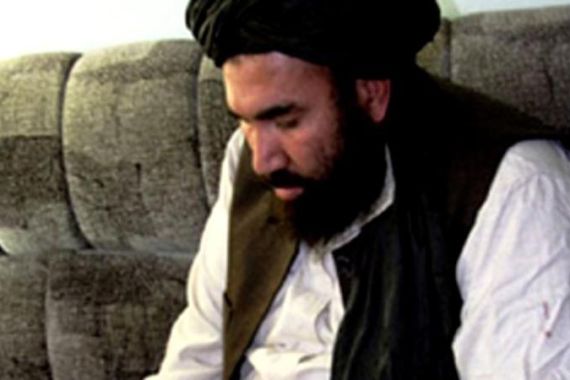Pakistan frees Afghan Taliban commander
Former Afghan Taliban second-in-command Abdul Ghani Baradar is released in bid to aid peace effort.

Pakistan has released Mullah Abdul Ghani Baradar, the former Afghan Taliban second-in-command, from prison in an effort aimed at bringing peace to Afghanistan.
“Yes Baradar has been released,” Omar Hamid, a spokesman for interior ministry told AFP news agency on Saturday, without elaborating.
The US and Afghanistan have long pressed Islamabad to free Baradar, a figure they believe could tempt moderate Taliban leaders to come to the negotiating table as US-led troops prepare to leave Afghanistan at the end of next year.
Pakistani sources said Baradar would probably be sent to Saudi Arabia or Turkey as part of that process, but Pakistan government officials would not confirm this.
Sartaj Aziz, a government adviser, told the Reuters news agency in Islamabad this month that Baradar would not be handed over to Afghanistan directly, as some in Kabul had hoped, and would instead be released into Pakistan.
He said it was important to make sure that released Taliban prisoners had a chance to establish contact with their leadership on the ground to persuade them to be part of peace talks – an idea he said Afghan President Hamid Karzai had agreed to.
“Obviously Karzai wanted him to go to Afghanistan, but we feel that if they are to play a positive role in the reconciliation process then they must do it according to what their own Shura [Council], their own leadership, wants them to do,” Aziz said.
Influence ‘eroded’
Afghanistan is trying to inject life into its attempts to negotiate an end to the Taliban’s campaign as most NATO combat troops prepare to pull out by the end of 2014, leaving the country to handle its own security.
A mid-level Afghan Taliban official told the AFP news agency that Baradar’s release would not have any effect on events in Afghanistan.
“He will be just a simple guy with no position in the Taliban network,” the official said.
Baradar was once a close friend of the reclusive Taliban leader, Mullah Mohammad Omar, who gave him his nom de guerre, “Baradar” or “brother”.
Al Jazeera’s Kamal Hyder, reporting from Islamabad, said that Baradar “is seen as a crucial bridge to try to convince Mullah Omar to come to the negotiating table.
“The biggest problem is that the Afghan Taliban have refused to talk to the Karzai government, calling it a puppet regime installed by the US and they have said they want to talk to the US directly. Baradar is the man who may act as a conduit.”
Even before his detention, Baradar was known as a pragmatic and level-headed operator who had once reached out to Kabul to seek a peace settlement, according to Afghan officials.
But critics said his years in Pakistani detention might have eroded his sway over the fast evolving group.
After the 2001 invasion of Afghanistan by US-led forces, Baradar emerged as the main day-to-day commander responsible for leading the campaign against them, planning offensives and bomb attacks.
Later, he secretly tried to explore the possibility of peace with Kabul, holding two meetings with Karzai’s late brother in Kandahar, Afghan officials said.
He was eventually captured in a joint CIA-Pakistani intelligence operation in Karachi.